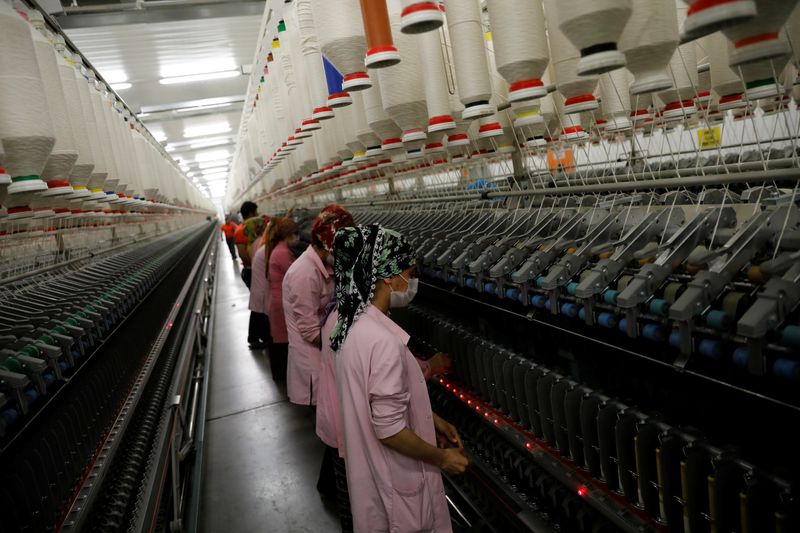ISTANBUL (Reuters) - The Turkish manufacturing sector contracted for a fifth consecutive month in July as weakening demand, market uncertainty and price pressures all played a role in moderating output, a business survey showed on Monday.
Turkey's Purchasing Managers' Index (PMI) for manufacturing stood at 46.9 in July, down from 48.1 in June, according to the survey by the Istanbul Chamber of Industry and S&P Global (NYSE:SPGI), dropping further below the 50-point line that marks a contraction in activity.
The panel said the print showed the most marked slowdown in business conditions since May 2020 when measures to tackle COVID-19 pandemic were in place.
Both output and new orders eased and firms scaled back purchasing activity. However, employment continued to grow, although marginally, as firms move to boost capacity.
July data suggested that demand in international markets was more favourable than domestically as new export orders were broadly stable during the month, the panel said.
Although at a softer pace when compared to previous months, input costs continued to rise sharply amid currency weakness, the survey also showed, while suppliers' delivery times continued to lengthen.

"Market uncertainty, soft demand and price pressures meant for a tricky time for Turkish manufacturers as the second half of the year began," said Andrew Harker, economics director at S&P Global Market Intelligence.
"There were further signs that the inflationary headwind has peaked, however, with both input costs and output prices rising at the slowest rates for almost a year-and-a-half. Reduced price pressures may provide some opportunities for firms to entice customers back in the months ahead."